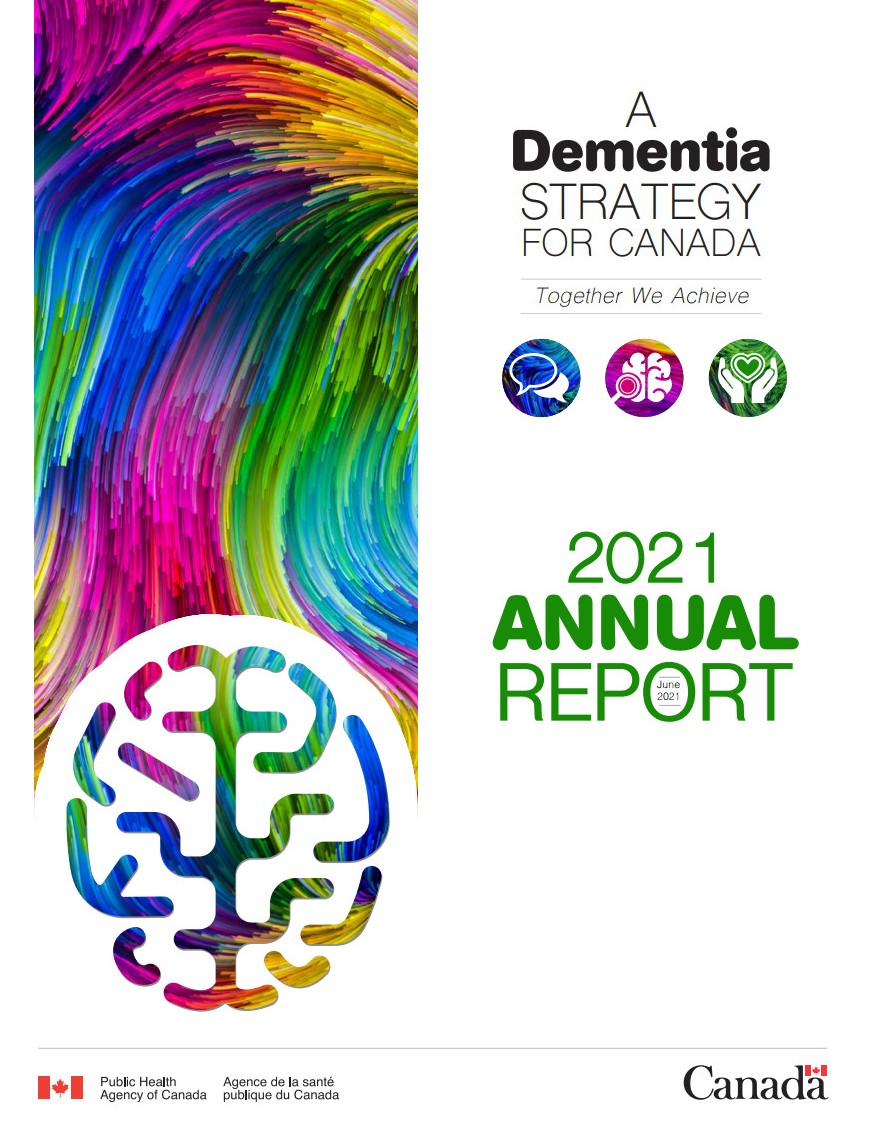A Dementia Strategy for Canada: Together We Achieve - 2021 Annual Report

For many Canadians living with dementia and those supporting them, the past year has been exceptionally difficult.Footnote2 Prolonged periods of isolation resulting from the COVID-19 pandemic have contributed to mental health issues and caregiver stress. Social distancing and other public health requirements prevented caregivers from visiting long-term care facilities, and caused disruptions to available supports and services for both caregivers and people living with dementia. Some caregivers report that the long periods of separation and reduced social interaction appear to have hastened cognitive decline and reduced quality of life among people living with dementia. Tragically, in the initial months of the pandemic when many of the reported COVID-19-related deaths were among older Canadians, 80% of those deaths took place in long-term care facilities and retirement homes, where the majority of residents are those living with dementia.Footnote3
This year's report includes a COVID-19 section that touches on some of the responses across Canada assisting people living with dementia and caregivers who continue to face the daily challenges created by the pandemic. Many initiatives were launched or adapted including: guidance to provide timely, safe and supportive care within long-term care facilities in the context of the pandemic; increased resources for organizations providing critical assistance to those in need; and new uses of technology to continue to reach individuals while adhering to public health guidance. Organizations often found ways to maintain programming and services for people living with dementia and caregivers, although some were forced to postpone or cancel activities.
The 2021 annual report to Parliament on Canada's national dementia strategy, A Dementia Strategy for Canada: Together We Aspire, shares with Canadians a variety of dementia-related efforts conducted by many different organizations across the country. Some of these initiatives focus on furthering dementia prevention through risk reduction by supporting healthy aging and built environments that encourage social contact and physical activity. Other initiatives emphasize the need to advance alternative dementia therapies to support quality of life, including through the use of innovative technologies, while work continues to find a cure. Efforts to promote the quality of life and wellbeing of people living with dementia and caregivers include those that highlight the importance of supporting intergenerational connections, improving navigation of community supports and the health care system, and promoting continued education for health and care providers.
The report once again shares selected data points to provide a snapshot of the state of dementia in Canada and insight on collective progress on the aspirations embedded in the strategy's national objectives. The number of data points in this year's report has nearly doubled from last year. Topics for the data points include stigma, caregiver distress, knowledge of Canadians about reducing the risk of dementia, quality of life in long-term care, as well as trainees engaged in dementia-related work funded by the Canadian Institutes of Health Research (CIHR).
Some populations within Canada have been identified as more likely to face barriers to equitable care and/or are at higher risk of developing dementia. A chapter focused on these populations notes some relevant initiatives such as work focused on the experiences of transgender and non-binary adults living with dementia, dementia-related stigma in Indigenous communities, and providing training to care providers in rural and remote communities on person-centred approaches. The 2021 report also includes informative data relevant to some of these priority populations. Survey responses to a 2020 dementia baseline survey commissioned by the Public Health Agency of Canada (PHAC) related to prevention, stigma and dementia-inclusive communities are shared this year for three priority populations – Indigenous peoples, ethnic populations and rural and remote communities.
View full report here.
-
By
Amaan Fazal
-
Published
Dec 05, 2022
-
Subject Area
-
Audience
-
Category
Newsletter
Sign up for the Healthy Aging CORE Canada e-news to keep up-to-date with activity from the platform and the Community-Based Seniors Services (CBSS) sector across the country.
